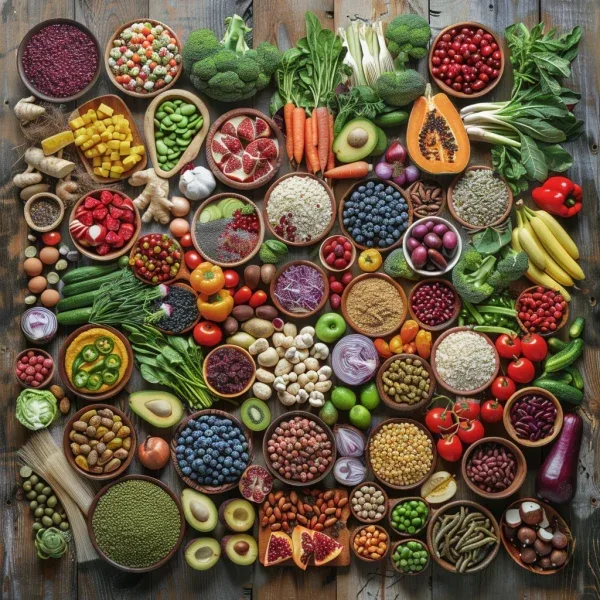by Gemma Delaney
 >
>
The exponential growth in vegan food choices in local stores and eateries is indicative of a society-wide paradigm shift that’s underway. Embracing veganism isn’t merely a fad, but an enduring choice that encompasses a lifestyle change – for health, compassion, environment and weight management. This comprehensive guide will help you understand why a switch to plant-based nourishment could transform your life for the better.
The Compelling Case for Going Vegan
Many individuals are drawn towards veganism out of compassion for sentient beings that constitute our environment. Performing a healthy lifestyle shift that refrains from leveraging animal suffering is a significant humanitarian act. Besides, numerous scientific studies address the urgent need for a shift to a plant-based diet from an environmental point of view.
As per vegan charity Veganuary’s figures, the water consumption and land usage in animal farming far exceed those required for plant cultivation. Moreover, arable farming also substantially reduces greenhouse gas emission. Beneath this compassionate and environmental standpoint, the health aspect of going vegan is another contributing factor. Along with lower risks of obesity, high blood pressure, cholesterol, Type 2 diabetes, heart disease, and some forms of cancer, a vegan diet offers multiple health benefits. In fact, renowned surgeon Kristi Funk sheds light on how nutrition contributes significantly to breast cancer risk, with meat and dairy products topping the list.
Veganism and Weight Management
If weight loss is on your agenda, taking the vegan route could be an excellent option. Scientific research portrays an association between meat-free diets and lower obesity rates along with healthier body mass indexes (BMI). Apart from helping you lose weight successfully, a vegan diet consisting high fiber foods like fruits, vegetables, seeds, nuts, and legumes keeps you satisfied, thereby curbing calorie intake. However, just like any other diet plan, avoiding junk food is essential. Although numerous vegan alternatives to junk food exist, it is crucial to avoid them if weight loss is the primary consideration.
The Transition to Veganism
Venturing into veganism may seem daunting at first, especially when considering scrapping meat, dairy, and eggs off your diet. Starting with a few vegan days per week can serve as a gentle introduction to this lifestyle. Once you become comfortable with the new diet regimen, you’ll find various delicious vegan adaptations of your favorite meals.
Nutrition in a Vegan Diet
Contrary to the popular myth, protein sources are available in abundance in a vegan diet. Reliable sources like nuts, tofu, beans, pulses, lentils, peas, seeds, and quinoa can meet your protein requirement. You can get a daily dose of iron from lentils, cashew nuts, chia seeds, chickpeas, and certain dry fruits. For adequate calcium intake, leafy greens, broccoli, figs, oranges, blackberries, almond butter, and tahini are beneficial. Omega-3 is available in flaxseeds, chia seeds, walnuts, and algae-sourced supplements. With all the required nutrients present in a balanced vegan diet, rest assured your body will thrive with vitality.
Is Veganism For Everyone?
Veganism is a diet plan that anyone can adopt. Even children can benefit immensely from plant-based meals though they may need time to adapt to the new food variety. Interestingly, several leading athletes and sportspersons are switching to vegan meals for better performance and energy levels.
In essence, the journey of veganism is filled with enlightening discoveries and profound health benefits. With gyms, running clubs, and fitness personalities all around advocating for plant-based diets, veganism truly seems like the much-needed global lifestyle revolution.

Veganism, plant-based diet, transition to vegan, health, environmental benefits of veganism, weight loss, vegan nutrition
Leave a Reply